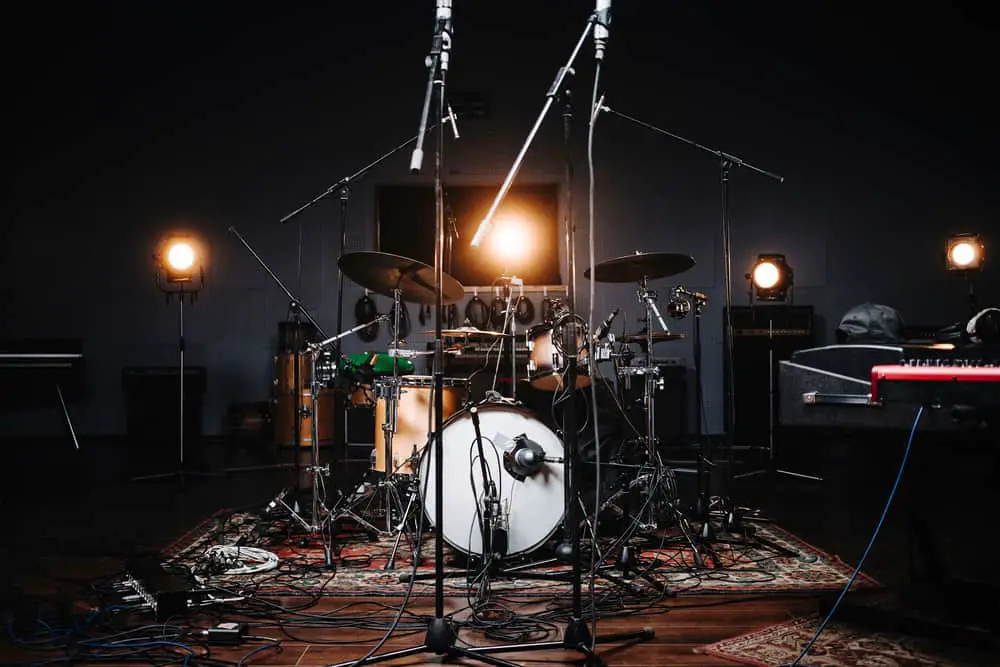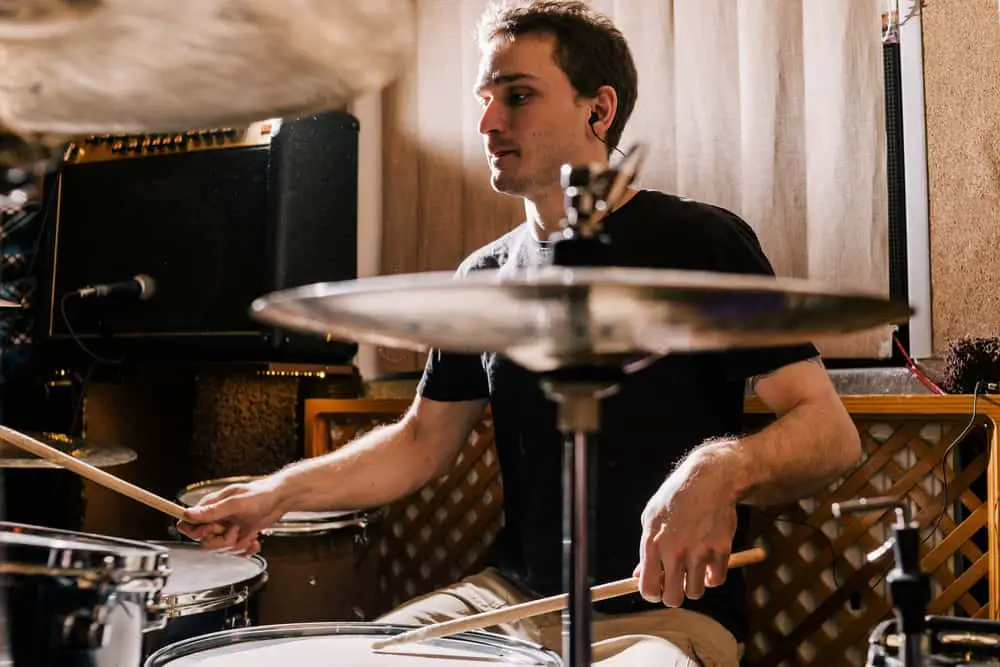
Many individuals think that you are not able to record drums last because drums are the foundation for the track, and everything gets recorded and layered over it. Furthermore, many individuals find it difficult to record drums first because they don’t understand how to do it (what measures you need to take in order to do so). Let’s see if it actually can be done and done well.
You are definitely able to record drums last. However, there are factors to consider. Ensure you have a click (metronome) for the other musicians, ensure they record perfectly in time, record them in the correct order and don’t mix or edit the track prior to having the drums recorded.
If you are a producer of sorts or a drummer and find that you are in a situation where you have to record drums last and don’t know what to do or your just wondering if it can be done, then read on. We will discuss in detail everything you need to know about how to record drums last and what factors you should consider when doing so.
Can you record drums last?
The simple answer is yes, you can, but there are various factors to consider if you wish to do so. For the most part, drums always used to be recorded first back in the day because the entire band would need something to listen to that would keep them in time.
However, nowadays, there are many ways to get around this. Most probably, if you are in any modern studio and even if you are in your home studio, you will have plugins, samples, and sounds that can reflect a kit in some way, or even if not, you can set up sounds to a click, and that would suffice.
The most important thing to remember is that other musicians who are recording will need some reference to keep time, and there are many ways to do this. The simplest is using the metronome built into your DAW and sending it through the monitor to the musician who is recording.
Factors to consider when recording drums last
As we said above, the most important thing to keep in mind is that the other members of the group, band, or act will need some reference to the tempo and rhythm of the song when recording if there is no drum track that has been laid down first.
We discussed that you could achieve this by using a metronome, sounds, samples, and plugins that can replicate some sort of rhythm.
This should be easy enough to set up in your DAW, and you should have no problem doing so.
Take note you will need to know the tempo of the song and any changes within. This means you might have to speak to the drummer or other members to find this out.
The next factor to consider is that you will need to choose the order everyone else is recording in because drums would typically be the first to record. It’s always been this way, and to some degree, it’s more beneficial because it’s almost like laying a foundation down for a house first.
Once you have your recording lineup, it is essential that everyone record in time. This is the most crucial aspect of recording drums last.
If you record drums first and the summer uses a click, then, for the most part, he will be on time. It’s all right if it’s not perfect everywhere because the other musicians will typically just follow the drums, and the recording will be in time to itself.
However, if you are recording drums last, everything needs to be perfectly in time; otherwise, when it gets to the drums, you are going to have a hard time recording and an even more difficult time trying to mix.
After you have made sure that you have recorded all the other instruments and vocals perfectly in time, you should leave any mixing till after you have recorded the drums.
Why shouldn’t you mix or add effects if you haven’t recorded drums first?
We touched on how drums can be related to the foundation of a house, and you don’t go putting the windows and roof on if you haven’t laid down the foundation correctly. This refers to mixing and adding effects.
If you start mixing and adding effects before the drums have been recorded, you will likely end up remixing the entire track.
In a typical recording situation, you would record and mix the drums along with the base first to establish the wideness of the track, the bass frequencies and to remove any other noises or interferences from those frequencies.
This is because most of the problems usually come in when recording the drums and bass due to the overlapping low frequencies.
Once that is done, you will subsequently layer all the other instruments on top of the bass and drums. It is much easier to do it this way.
You will probably EQ things according to those missing bass frequencies if you start mixing the track before the drums are recorded. This means that your mixing of the other instruments will interfere when you put the drums in the track. This will happen ten times out of ten, and you will find that you are getting noise, booming, or things just don’t sound right in the middle and low frequencies.
Hence it would help if you only recorded all the instruments and vocalists and then wait for the drums to be recorded.

Who should record first if drums are last?
The best thing to do is stick to the tried formula. Typically you would have drums, then bass, then keys or guitar, then vocals last. Any other instruments would fit in with the guitar and keys.
However, if you are recording drums last, then it is even more important to stick to the formula. You won’t be able to have the vocalist go first unless they are phenomenal, to say the least, and have perfect pitch.
REcording a vocalist on an empty track is cause for disaster, and it will most likely end up that way 9 times out of 10 with you having to re-record again and again.
Start with recording the bass player first. They will record to the accompaniment you set up for the “drum kit,” which is a metronome, sound samples, or anything else of the sorts in your DAW.
Typically, the bass player will be in line with the drummer playing accents on various beats and such, so they will be able to help you record and set out the structure of the song.
Next, you should record any instruments like the keys or guitar because they will be playing chords, licks, runs, and anything else that the vocalist can pitch off of. Good vocalists will be able to pitch off the bass, but many vocalists won’t be able to do this.
Conclusion
We discovered that you can indeed record drums last. That is because it is much simpler to get things done in the studio today than before. It used to be that the drummer had to record first so the other band members could reference it for the song structure and rhythm, but that can be replicated in so many ways in DAWs now that drums can most definitely be recorded last.
We found out that there are factors to consider if you plan to record drums first, and they are, ensure you have a click (metronome) for the other musicians, ensure they record perfectly in time, record them in the correct order and don’t mix or edit the track prior to having the drums recorded.
Besides that, there is no other reason why you shouldn’t be able to record drums first. If you stick to the proper formula for recording, know what you are doing, and plan, then it shouldn’t be a problem.
You can learn about the differences between rubber and mesh drum kits here.

